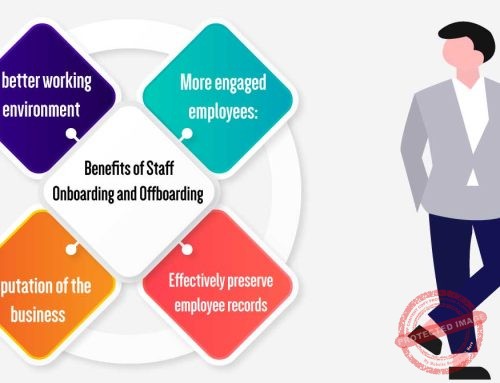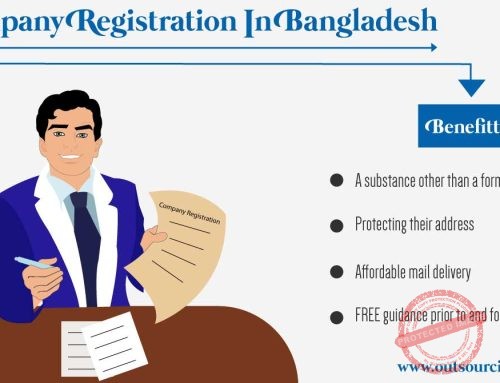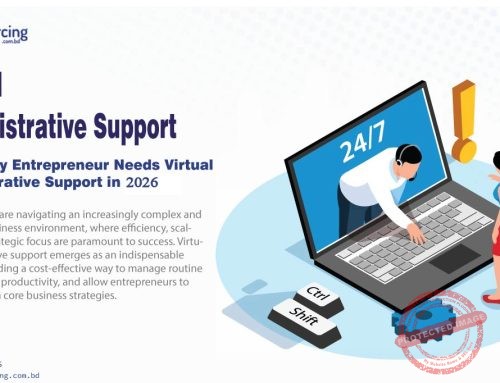VAT registration can enhance business credibility in several ways. Firstly, being VAT-registered signals to clients, partners, and competitors that a business has achieved a certain level of turnover, elevating its stature in the marketplace.
This can instill trust among clients who may perceive the business as stable and reliable. Secondly, when businesses provide VAT invoices, they demonstrate compliance with tax regulations, showcasing their commitment to ethical and transparent operations.
Additionally, VAT registration can simplify trade with other VAT-registered businesses, as they often prefer to deal with registered entities for input tax reclaim purposes. VAT registration not only ensures tax compliance but also serves as a badge of professionalism and legitimacy in the business landscape.
Therefore, the following query can be posed, “Why Should Businesses Consider Early VAT Registration?”
Early VAT registration allows businesses to reclaim VAT on startup costs, enhances their credibility, prepares them for potential growth, and simplifies future administrative tasks by familiarizing them with VAT processes from the outset.
Let’s discuss it right away!
Why Should Businesses Consider Early VAT Registration?
Businesses should consider early VAT registration for several strategic and operational reasons. It allows them to reclaim VAT on initial startup costs, including equipment, inventory, and services, effectively reducing their net expenses.
Being VAT-registered can enhance a business’s credibility and professional image, signaling to potential clients and partners that the company is serious and committed to compliant operations.
It can also level the playing field when dealing with other VAT-registered entities, as many businesses prefer or are mandated to work only with VAT-registered suppliers.
Furthermore, early registration prepares a firm for potential quick growth by ensuring that they are already compliant when the VAT threshold is reached. This proactive strategy can also reduce administrative costs in the long term, as firms get comfortable with VAT activities from the start.
The number of VAT-registered businesses grew by 0.4% in April 2023 compared to March, with 4,859 more units.
7 Advantages of VAT Registration
Certainly! Here are some key advantages of VAT registration:
1. Input VAT Reclaim
Registered businesses can reclaim the VAT they have paid on business-related goods and services, reducing their net expenses.
2. Enhanced Credibility
Being VAT-registered can increase a business’s credibility and professionalism in the eyes of clients, suppliers, and competitors.
3. Preparation for Growth
Businesses approaching the VAT threshold can prepare in advance for inevitable registration, streamlining their transition.
4. B2B Opportunities
Some larger businesses or government contracts might only deal with VAT-registered entities, so registration can open up new business opportunities.
5. Transparent Pricing
Including VAT in prices provides clarity to customers, ensuring that there are no hidden costs.
6. Regulatory Compliance
Being registered ensures compliance with tax authorities, reducing the risk of penalties and fostering a good business reputation.
7. Simplified Cross-border Trade
For businesses operating in regions with VAT systems, registration can streamline the process of cross-border trade and services.
How to Obtain a VAT Registration Certificate in Bangladesh?
To obtain a VAT Registration Certificate in Bangladesh, businesses typically need to follow a set procedure as mandated by the country’s National Board of Revenue (NBR). Initially, the business should ensure it meets the turnover threshold set by the NBR for VAT registration.
The registration process usually involves submitting an application form to the designated VAT office, along with the necessary supporting documents such as the company’s trade license, TIN (Tax Identification Number), and proof of business location.
The VAT office will provide a unique VAT Registration Certificate to the firm once the application has been evaluated and accepted. This certificate proves that the company is registered for VAT in Bangladesh and is required to follow the country’s VAT legislation.
Businesses need to keep updated with any changes in the VAT registration procedure, as the NBR might revise processes and requirements over time.
VAT Rates for Various Businesses
Note that actual VAT rates vary by country and may change over time. To get the specific VAT rates for a certain country, you’ll need to refer to that country’s official taxation or revenue authority.
Here’s a generic table for illustration:
Type of Business
Standard VAT Rate
Reduced VAT Rate
Zero VAT Rate
Retail
20%
10%
N/A
Hospitality & Catering
20%
5%
N/A
Print Media
N/A
N/A
0%
Pharmaceutical
20%
N/A
0% for specific drugs
Utilities
10%
5%
N/A
Digital Services
20%
N/A
0% for educational content
Transport
15%
N/A
0% for educational content
How to Handle VAT Registration for Multiple Businesses?
Handling VAT registration for multiple businesses can be complex but is manageable with proper planning and understanding. If you operate multiple businesses, each distinct business entity might need its VAT registration, especially if they function independently of each other.
However, some jurisdictions allow for group VAT registration, wherein multiple businesses under common ownership or control can register as a single VAT entity. This can simplify VAT reporting and administrative processes, as intra-group supplies might be exempted from VAT.
It’s essential to maintain clear records for each business to ensure accurate VAT reporting and compliance. Consulting with a tax professional can offer insights into the best approach based on your businesses’ structures and operations, and the jurisdiction(s) in which they operate.
Additionally, understanding local VAT regulations is crucial to determine the feasibility and benefits of group registration versus individual registration.
While the National Board of Revenue’s tax-net-expansion measures have effectively increased the number of taxpayers to around 7.4 million, the number of returns submitted remains low at 2.3 million.
How Are Digital Goods Handle in VAT Registration?
Digital goods, often refer to as e-services, have seen increasing attention in VAT regulations worldwide due to the rapid growth of the digital economy. For VAT registration purposes, digital goods are typically treat differently than physical goods.
Many jurisdictions now require businesses supplying digital goods to register for VAT even if they are based outside the country. This is commonly know as the “destination principle,” where VAT is apply base on the customer’s location rather than the supplier’s.
Consequently, businesses supplying digital goods to customers in different countries might have to register for VAT in each of those countries, collect VAT at the local rate, and remit it to the respective local authorities.
Some countries offer simplified VAT registration systems for foreign-based digital service providers to ease the administrative burden. It’s crucial for businesses dealing in digital goods to stay updated on evolving VAT regulations in all their target markets and ensure compliance.
Difference Between VAT Registration vs GST Registration
Certainly! Below is a short comparative table highlighting the primary distinctions between VAT (Value Added Tax) and GST (Goods and Services Tax):
Feature
VAT Registration
GST Registration
Nature
Tax on the value added at each stage of production.
Comprehensive tax on the manufacture, sale, and consumption of goods and services.
Scope
Typically limited to goods
Covers both goods and services.
Tax Credit Mechanism
Input tax credit is available for VAT paid on purchases.
Input tax credit is available for GST paid on both goods and services.
The number of Taxes
Might coexist with other taxes.
Tends to subsume multiple indirect taxes like service tax, excise duty, etc.
Implementation
Used by many countries independently.
Examples include India, Australia, and Canada, each with its unique model.
Rate Variability
Often one standard rate, with exceptions.
Multiple rates may exist depending on the good or service and jurisdiction.
Is VAT Registration Mandatory for All Businesses?
VAT (Value Added Tax) registration is not universally mandatory for all businesses; its necessity largely depends on the jurisdiction and specific criteria set by the governing body.
Often, the requirement to register for VAT is determine by the annual turnover of a business, with a minimum threshold typically establish.
However, there are benefits to voluntary registration, such as reclaiming input VAT. Businesses exceeding this threshold are obligate to register, while those below may do so voluntarily.
In some countries, certain goods or services may be exempt from VAT altogether. Businesses need to understand their local VAT regulations to ensure compliance and maximize financial efficiency.
5 Tips for VAT Registration
Absolutely, here are the top 5 condense tips for VAT registration:
1. Check Eligibility
Before proceeding, ensure your business meets the necessary revenue thresholds or other criteria for mandatory VAT registration in your jurisdiction.
2. Documentation Preparedness
Have all essential documents, like business licenses, ID proofs, and financial records, ready before beginning the registration process.
3. Understand Different VAT Rates
Familiarize yourself with the various VAT rates applicable to your products or services, such as standard, reduced, or zero rates.
4. Opt for Online Registration
Utilize online portals, if available, for a more efficient and quicker registration process compared to traditional methods.
5. Seek Expertise
Given the complexities of VAT laws, consider enlisting the help of a tax consultant or accountant familiar with local VAT regulations to ensure accurate registration and compliance.
Conclusion
VAT registration is a critical aspect of business operations in many jurisdictions. While it might not be universally mandatory for all businesses, its relevance cannot be understate. Businesses that meet or exceed specific turnover thresholds are typically require to register.
However, even those that don’t might find benefits in voluntary registration. Understanding and adhering to local VAT regulations is not only essential for legal compliance but also for ensuring financial transparency and credibility in the marketplace.
FAQ
How does VAT registration impact Your pricing?
VAT registration means you’ll need to add the appropriate VAT rate to your goods or services, potentially increasing the price for end consumers unless you choose to absorb the cost.
How long does VAT registration take?
The duration varies by jurisdiction. It could be anywhere from a few days to several weeks.
Who can apply for registration of VAT?
Any importer, exporter, or taxable provider must participate in the VAT Procedure under the VAT Procedure. This participation in the VAT procedure occurs through registration or enrollment.
What is the new VAT law in Bangladesh?
A new VAT and Supplementary Duty Act was approve by the parliament in 2012 and came into effect in July 2019. The general rate of VAT remains at 15%.






